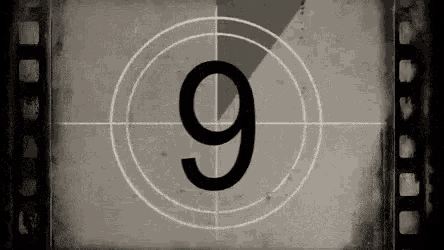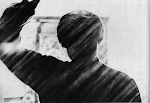By Steve Evans
Last night I dreamed that Jackie Coogan returned from the dead to speak with me while in costume for his best-known role, Uncle Fester in the 1960s television show The Addams Family. But it was in costume only, not in character.
Last night I dreamed that Jackie Coogan returned from the dead to speak with me while in costume for his best-known role, Uncle Fester in the 1960s television show The Addams Family. But it was in costume only, not in character.
 I blame these odd nocturnal flights of fancy on the grilled
pork Chimichangas I enjoyed the evening before with screaming hot salsa and
frozen margaritas. Perhaps it was no coincidence, then, that Coogan met me in
my dream on a sidewalk outside a Cancun cantina, where he drank iced lemon
water through a straw and munched tortilla chips with childlike enthusiasm.
I blame these odd nocturnal flights of fancy on the grilled
pork Chimichangas I enjoyed the evening before with screaming hot salsa and
frozen margaritas. Perhaps it was no coincidence, then, that Coogan met me in
my dream on a sidewalk outside a Cancun cantina, where he drank iced lemon
water through a straw and munched tortilla chips with childlike enthusiasm. He told me about his rollercoaster life as an impossibly rich
child movie star during the silent era and into the Depression. Coogan worked
with Charlie Chaplin on one of the brilliant performer’s greatest films, The
Kid (1921). It is an unequaled masterpiece that will charm you to within an
inch of your life as you burn through half a box of Kleenex, mainly on the strength of Coogan’s acting. He was six years old. The film hasn't aged a bit.
He told me about his rollercoaster life as an impossibly rich
child movie star during the silent era and into the Depression. Coogan worked
with Charlie Chaplin on one of the brilliant performer’s greatest films, The
Kid (1921). It is an unequaled masterpiece that will charm you to within an
inch of your life as you burn through half a box of Kleenex, mainly on the strength of Coogan’s acting. He was six years old. The film hasn't aged a bit.
Coogan recalled his shock upon learning when he turned 21 that his mother and
stepfather had squandered his fortune – estimated at nearly $4 million – on high
living, jewels, furs and expensive cars. While we spoke, I used my smart phone
to Google an inflation calculator. We ran the numbers. Coogan insisted that I
show him, and his face darkened on discovering that his childhood wealth would
be equal to about $70 million in today’s dollars.
***
It must be emotionally devastating to sue your own mother,
but that’s what Coogan did in 1938. When it was all over, he received only
$126,000 out of a quarter-million, all that was left from his earnings as a
movie star.
This maternal treachery resulted in the California Child Actor's Bill in 1939. The legislation is more commonly known as the "Coogan Law" and requires the guardian of a child actor to set aside at least 15 percent of earnings in a trust with the child named as sole beneficiary.
This maternal treachery resulted in the California Child Actor's Bill in 1939. The legislation is more commonly known as the "Coogan Law" and requires the guardian of a child actor to set aside at least 15 percent of earnings in a trust with the child named as sole beneficiary.
The oft-married Coogan made his first skip to the altar with
pinup legend Betty Grable, though that union lasted less than two years. The
fourth time around was the charm: he remained married to Dorothea Hanson from
1952 until his death 32 years later.
 I couldn’t let Coogan’s ghost slip back into the ether without asking him
about the dark years after his family embezzled all his money, when he was
reduced to appearances in such films as Mesa of Lost Women, a bizarre,
no-budget horror flick from 1953 that delivers a full 70 minutes of…Huh? There are flashbacks inside of flashbacks. Characters recall events at
which they were not present. The sets are wobbly. There’s a giant puppet spider, several gorgeous women
wearing ragged frocks, the mist-shrouded mesa of the title, and dwarf Angelo Rossito, whose
own career spanned from Freaks (1932) to Mad Max: Beyond Thunderdome (1985)
with Mel Gibson.
I couldn’t let Coogan’s ghost slip back into the ether without asking him
about the dark years after his family embezzled all his money, when he was
reduced to appearances in such films as Mesa of Lost Women, a bizarre,
no-budget horror flick from 1953 that delivers a full 70 minutes of…Huh? There are flashbacks inside of flashbacks. Characters recall events at
which they were not present. The sets are wobbly. There’s a giant puppet spider, several gorgeous women
wearing ragged frocks, the mist-shrouded mesa of the title, and dwarf Angelo Rossito, whose
own career spanned from Freaks (1932) to Mad Max: Beyond Thunderdome (1985)
with Mel Gibson.
Coogan agreed that Mesa of Lost Women is pretty bad –- even the narration clarifies nothing -- but the film is not without appeal. The
grating piano-and-flamenco-guitar music score would test anyone’s endurance, he
observed, but the characters are so ridiculous and the line readings so awful that
it endures in the canon of Le Bad Cinema. Regardless, a paycheck is a paycheck,
he added wryly, especially when you’re broke.
A decade later The Addams Family would provide Coogan with a steady paycheck for a few years and a career resurgence with his role as odd Uncle Fester, who could illuminate lightbulbs by inserting them in his mouth. Fester was also a master of disaster with explosives and other life-threatening shenanigans befitting a mad scientist. Coogan smiled when I told him Uncle Fester was always my favorite character on the show.
I asked him what he thought of Christopher Lloyd’s interpretation of the role in the 1990s film adaptations. Coogan shrugged; said he never saw them.
Offscreen, Coogan was a tireless advocate for the welfare of children. For decades he worked with The Near East Foundation, the oldest nonsectarian humanitarian organization in the United States. Founded more than a century ago, the organization is now active in 40 countries. In his lifetime Coogan helped the foundation raise more than $12 million.
Coogan died of heart failure, March 1, 1984. I asked him why he waited 33 years to visit my dreams. His eyes grew wide.
“I have unfinished business," he said. "That's what ghosts do. See, the limelight gets under your skin when you’re onstage. It’s intoxicating; a drug that drives your art. It's about posterity. Nobody remembers Jackie Coogan anymore. And I don't want to fade away."
He got up from the table, wiped tortilla crumbs from his shirt, and we shook hands. "Don't let them forget me," he said.
Damn Chimichangas.
“I’ll do what I can,” I assured him. Then I woke up.
Cinema Uprising copyright © 2017 by Steve Evans. All rights reserved.
A decade later The Addams Family would provide Coogan with a steady paycheck for a few years and a career resurgence with his role as odd Uncle Fester, who could illuminate lightbulbs by inserting them in his mouth. Fester was also a master of disaster with explosives and other life-threatening shenanigans befitting a mad scientist. Coogan smiled when I told him Uncle Fester was always my favorite character on the show.
I asked him what he thought of Christopher Lloyd’s interpretation of the role in the 1990s film adaptations. Coogan shrugged; said he never saw them.
Offscreen, Coogan was a tireless advocate for the welfare of children. For decades he worked with The Near East Foundation, the oldest nonsectarian humanitarian organization in the United States. Founded more than a century ago, the organization is now active in 40 countries. In his lifetime Coogan helped the foundation raise more than $12 million.
Coogan died of heart failure, March 1, 1984. I asked him why he waited 33 years to visit my dreams. His eyes grew wide.
“I have unfinished business," he said. "That's what ghosts do. See, the limelight gets under your skin when you’re onstage. It’s intoxicating; a drug that drives your art. It's about posterity. Nobody remembers Jackie Coogan anymore. And I don't want to fade away."
He got up from the table, wiped tortilla crumbs from his shirt, and we shook hands. "Don't let them forget me," he said.
Damn Chimichangas.
“I’ll do what I can,” I assured him. Then I woke up.
Cinema Uprising copyright © 2017 by Steve Evans. All rights reserved.






